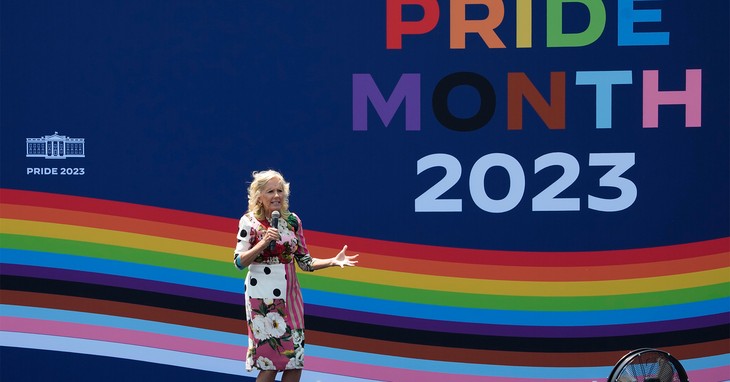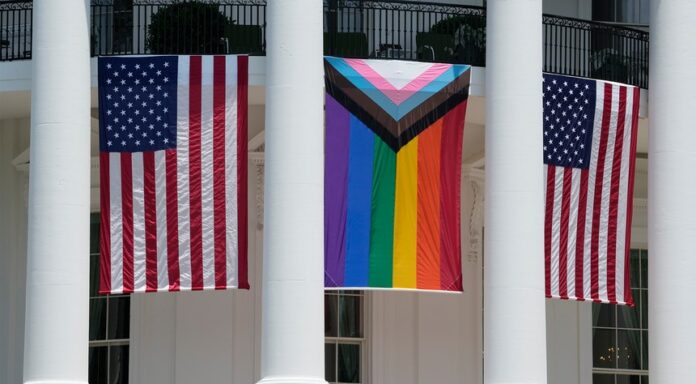This has been both a tumultuous and revealing month of June in the corporate world. This year’s Pride Month participation appears to have been scaled back to a degree from past years when the onslaught of rainbow corporate logos was nearly oppressive. This year there have been a number of signifiers that this deliberate push of activism has been contentious, and that is something most companies want nothing to do with.
As the lobbying efforts have been ramped up in recent years – due in most part to the aggressive stances of the trans movement and its allies – the resistance to this social pressure has also built up, and suddenly companies that injected themselves into the discussion found they were caught up in a social crossfire. There are three primary reasons that getting into the social debate is a dicey proposition, and these are details most companies should take into consideration
The Limited Upside To Pride Activism
The first challenge with corporate Pride involvement is looking at the market benefits. As it stands today the LGBT𝜋 percentage of America sits below 10 percent, and the trans community numbers below a single percentage point. To cater to this small minority means that you have to consider the ramifications your actions will have on the remaining 90 percent of consumers. This is not to say they should not market to these groups, but doing so at the exclusion of, or in contradiction to your larger customer base is a fool’s errand.
One other reality needs to be addressed, but it is one few in the corporate world want to admit to: This is not a reliable economically supportive group. Anecdotally, two years ago Kellog’s released Together With Pride cereal, a multi-colored heart-shaped product with box instructions about choosing your own pronouns. Months later I still saw these boxes sitting on the shelf, nearing an expiration date.
Just found Kellog’s cereal pride campaign from 2021. The more you search, the more you find unfortunately. pic.twitter.com/XfQ06ebxmV
— The Woke: Exposed (@Thewokeexposed) April 11, 2023
Over the years we have seen repeated examples of these activists, and others, who have raged on social media for companies to make changes to particular aspects of their corporate structure and activities, without it leading to a commercial benefit. For one example, I recently explored what took place when General Mills made the huge announcement that it was phasing out the Aunt Jemima brand and logo to appease the BLM movement of the time.
This decision garnered plenty of news coverage, but journalists have been far less interested in the results. Market surveys at the time of the decision showed while many were aware of the name switch (roughly two-thirds of respondents) slightly more said that the name change would drive them away than inspire them to buy the rechristened product – 28 percent to 23 percent. More telling, of those who approved of the name change barely one-third said it would make them view the company favorably.
The result: The products suffered double-digit losses for six consecutive sales quarters, losing at best 50 percent of its market share. This is something seen with the LGBT𝜋 customer base and Hollywood. Disney has suffered a number of box office setbacks with movies that contained gay characters and content. More specific still, last fall the film “Bros” was released, a heavily touted gay romantic comedy. It received a wide release and heavy promotions from the studio — and it bombed, spectacularly. In breaking down the numbers behind that film it showed that hardly any people from the gay community turned out to see the film.
The Divisive Nature Of Subject Matter
The strong push of late for gay-trans issues in the media and the marketplace has provoked an unforeseen result in recent months. As more energy is spent to push this agenda the general public is resisting. Going back to last year when Ron DeSantis curtailed classroom content of a sexual nature the press and some companies loudly opposed this agenda. What they had to ignore was voter support for this legislation. And there have been other surprising results of this nature – “surprising” because the mass media push is having an opposite effect on the public.
At the Washington Post, they were surprised by its own poll that showed a majority of Americans support GOP bills protecting children from gender-altering operations, what the paper dubbed to be “anti-trans bills”. This month a Gallup survey showed that not only do a majority of Americans oppose trans athletes competing in women’s sports, but after years of the press pushing hard to allow trans athletes to compete the number of Americans opposing this grew over that time.
You’ll see numerous stories bemoaning the large number of bills proposed in states across the nation allegedly opposing gay/trans rights, but what needs to be ignored in these complaints is these are politicians passing legislation they were elected to enact to battle back the excessive moves made in many areas of the culture. The people are not being swayed at all by this agenda-driven agitprop in the press.

The Reality Of Angering Both Sides
Perhaps the one thing beginning to resonate with companies is the emergence of companies that pandered in recent months suffering boycotts from both sides after entering into the gay/trans debate ring. Bud Light is, quite obviously, the flashing red light of an example in this case, but while many try to say this is an anti-trans movement, again other details need to be ignored. Once the brewery realized it stepped on a commercial claymore it attempted to reverse course, and this then aggravated the gay activists, who then called to also boycott the brand.
Target stores saw a similar whiplash result when it displayed a line of trans-friendly clothing for Pride Month. After initial protests for children’s apparel from this line some of the stores shifted this clothing display to deeper parts of their sales floor. This then angered those in support of gay/trans issues. After claims there had been violence at some stores, bomb threats called into numerous locations came from at least one LGBT𝜋 supporter.
Even something as benign as the weak social signaling from the Associated Press had this double-backfire effect. For June the news syndicate updated its AP Stylebook guide for covering LGBT𝜋 issues and stories, and even this low-level pandering failed both ways. Initially, the site was mocked for its strained efforts at contorting the language to appease the activist set, but then the very crowd they intended to satisfy with sensitive terminology demands became enraged at the directive to avoid using “TERF,” because that is a preferred invective from the same crowd.
On our updated Transgender Topical Guide: trans-exclusionary radical feminist.
We recommend avoiding the vague and politicized term to describe cisgender women or others who object to the inclusion of transgender women in women's spaces.https://t.co/HEBdoiEWnM pic.twitter.com/zSet75MbU5— APStylebook (@APStylebook) June 14, 2023
What’s lost on these companies is that there is a way to appeal to a market segment without alienating other demographics. For decades Bud Light has marketed to the LGBT𝜋 crowd, and it rarely created controversy because it was not done in a fashion that excluded or overshadowed others. Whether it was providing glassware and tap handles at gay bars or handing out promotional items at Pride events, this was targeted marketing, aimed at one group without distancing another.
For anyone who might suggest this is a way of compartmentalizing gays and putting them in an advertising closet, let me explain – no, that is wrong. When I worked for an Anheuser-Busch distributor, there were numerous promotional items and options. NASCAR was a targeted crowd, the Hispanic drinker was appealed to through soccer promotions, and even hunters were appealed to with Busch branding. But none of these were done as a featured segment, at the exclusion of others. If you had a preference, there was a way to aim there.
While there are various influences on businesses to become loudly active in social issues what needs to be weighed is the reaction to these efforts. It may look proper on paper and sound good in the boardroom, but there is a basic reality that is constantly bypassed by these corporate wizards. When you choose a side you have also chosen opposition and as a result, a core segment of your customer base is now being repelled. Look at how Gillette decided to undertake the woke messaging of toxic masculinity and promptly sheared off a huge portion of its buyers.




